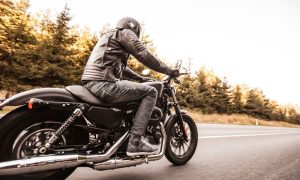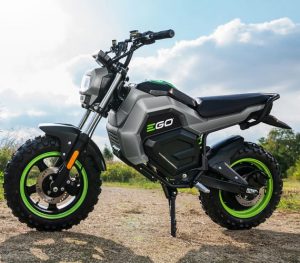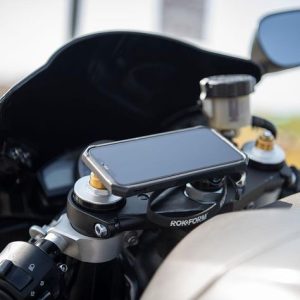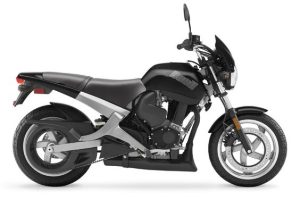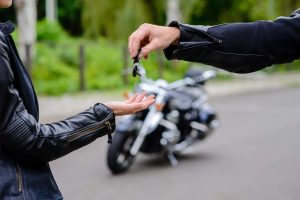May 24, 2024
Your Guide to Buying a Used Motorcycle
Buying a used motorcycle can be an exciting way to experience the thrill of riding at a fraction of the cost of a new bike. However, it’s important to be informed before you hit the road. This guide will equip you with the knowledge you need to find the perfect used motorcycle for you.
Know Yourself, Know Your Ride
Before diving into the used motorcycle market, take a step back and consider what kind of riding experience you’re looking for.
Cruisers offer a relaxed riding position and are perfect for cruising highways.
Sportbikes are built for speed and agility, ideal for experienced riders who enjoy winding roads.
Standard motorcycles provide a balance between comfort and performance, making them a versatile choice for many riders.
Adventure bikes are designed for off-road exploration and long-distance touring.
Think about where you’ll be riding and what features are important to you. Do you prioritize comfort, performance, or a blend of both? Once you have a good idea of your riding style, you can start narrowing down your search.
Do Your Research
The internet is a powerful tool for researching used motorcycles. Here are some resources to get you started:
- Motorcycle manufacturer websites often have detailed information on specific models, including specifications, reviews, and common problems.
- Motorcycle forums are a great way to connect with other riders and get their insights on different bikes. Search for forums dedicated to the makes and models you’re interested in.
- Motorcycle review websites offer professional evaluations of new and used motorcycles. These reviews can help you understand a bike’s strengths and weaknesses.
In addition to online research, consider attending motorcycle shows or visiting dealerships to get a feel for different bikes in person. Sit on them, get a sense of their weight, and see if they feel comfortable.
Finding the Right Motorcycle
Once you know what you’re looking for, it’s time to start browsing used motorcycle listings. Here are some popular places to find used bikes:
Online marketplaces:
Many online marketplaces have dedicated sections for used motorcycles. Be sure to filter your search by make, model, year, and price.
Classifieds websites:
Look for classifieds websites in your area that list used motorcycles for sale by private sellers.
Motorcycle dealerships:
Many dealerships sell used motorcycles in addition to new ones. They often offer financing options and may provide a warranty on the bike.
When browsing listings, pay attention to the following:
- Year, make, and model: Research the specific model year you’re interested in to learn about any common problems or recalls.
- Mileage: Mileage can be an indicator of a motorcycle’s overall condition. However, it’s not the only factor to consider. A well-maintained bike with high mileage can be a better buy than a neglected bike with low mileage.
- Price: Compare the asking price to similar motorcycles in your area. Be prepared to negotiate the price, especially with private sellers.
- Condition: The listing should include photos of the motorcycle from multiple angles. Look for any signs of damage, such as dents, scratches, or leaks.
Inspect Before You Invest
Once you’ve found a motorcycle that interests you, it’s important to inspect it in person before buying a used motorcycle. Here are some things to look for:
- Overall condition: Look for any signs of rust, damage, or leaks.
- Tires: Check the tread depth and overall condition of the tires.
- Brakes: Test the brakes to ensure they are firm and responsive.
- Lights and turn signals: Make sure all the lights and turn signals are working properly.
- Fluids: Check the oil, coolant, and brake fluid levels. The oil should be clean and free of debris.
If you’re not mechanically inclined, consider taking the motorcycle to a mechanic for a pre-purchase inspection. This is a small investment that can save you money in the long run by identifying any potential problems.
The Paper Trail
Before you buying a used motorcycle, make sure you have all the necessary paperwork in order. This includes:
- The title: The title is the legal document that proves ownership of the motorcycle. Make sure the title is free and clear of any liens.
- The registration: The motorcycle must be registered in your name with the Department of Motor Vehicles (DMV).
- The bill of sale: This is a document that outlines the sale of the motorcycle between you and the seller. It should include the make, model, year, VIN number, and selling price of the motorcycle.
Gear Up for the Ride
Once you’ve found your perfect motorcycle and ensured it’s safe and legal to operate, it’s time to focus on yourself! Gear is an essential part of motorcycling, protecting you and keeping you comfortable on the road.
- Helmet: This is the most crucial piece of motorcycle gear. Choose a helmet that fits snugly and is certified by the Department of Transportation (DOT) or another reputable safety organization.
- Jacket: A motorcycle jacket should be made of abrasion-resistant material and offer protection for your elbows, shoulders, and back. Look for jackets with built-in armor or pockets for adding armor.
- Pants: Similar to your jacket, motorcycle pants should be abrasion-resistant and offer protection for your knees and hips. Consider pants with built-in armor or pockets for adding armor.
- Gloves: Choose gloves that offer good grip and protection for your hands. Look for gloves made of leather or a similar durable material.
- Boots: Motorcycle boots should be sturdy and offer ankle protection. Avoid boots with laces that can get caught in the motorcycle’s controls.
Education for the Road
Motorcycling is a fun and rewarding activity, but it’s important to prioritize safety. Here are some ways to educate yourself before buying a used motorcycle:
- Motorcycle safety course: Taking a motorcycle safety course is a great way to learn the basics of safe riding. These courses cover topics like motorcycle operation, hazard awareness, and defensive riding techniques.
- Motorcycle handbook: The Department of Motor Vehicles (DMV) offers a motorcycle handbook that covers the rules of the road and safe riding practices.
- Online resources: There are many online resources available that offer motorcycle safety tips and information. Be sure to get information from reputable sources.
By following these tips, you can ensure a safe and enjoyable motorcycling experience.
